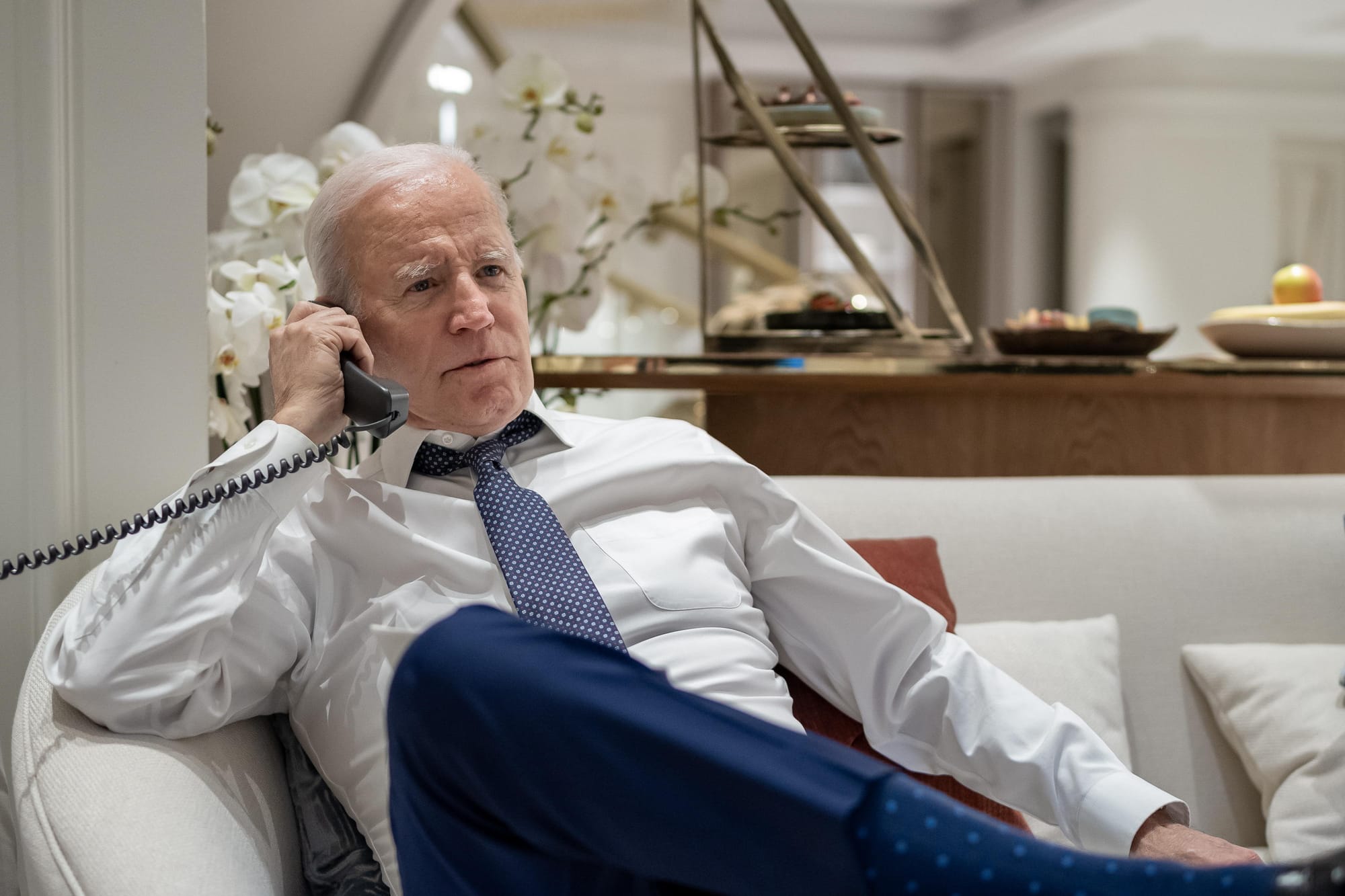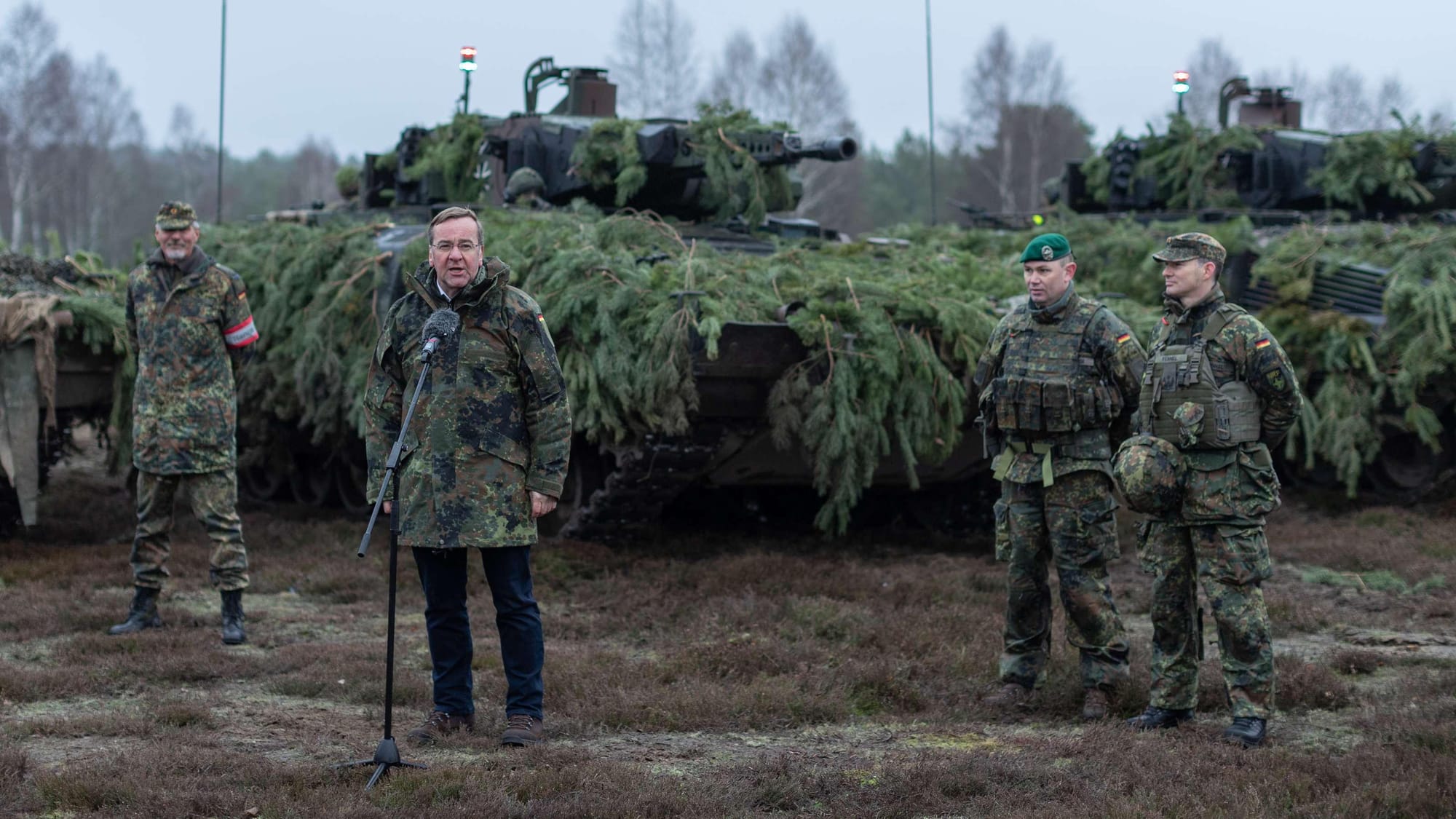The obvious failure of the NATO-led proxy war against Russia in Ukraine is leading to a shift in strategy. Not only has Ukraine lost the military conflict in the southeast of the country, despite tens of billions of dollars in military support provided by NATO countries—but that flow of money itself is now drying up, as the U.S. Congress has been unable to pass President Joe Biden’s $106 billion war budget request—$60 billion of which is intended for Ukraine. Despite this, NATO has no intention of backing away from its objective—the strategic defeat of Russia—and is now increasing pressure on European countries to engage in an all-out war mobilization, both militarily and also economically. However, as can be seen from recent statements by European officials, this strategy depends on gaining the support of an already war-weary population, and therefore new, more dramatic methods are being employed to terrorize the public into accepting that a full-blown war with Russia is necessary in order to preserve “Western civilization.”

Schiller Institute founder Helga Zepp-LaRouche warned on Nov. 26, 2023, during an online emergency forum entitled “No More War Crimes! Economic Development, Not Depopulation!” that such a shift was already underway. In her opening remarks, Zepp-LaRouche referred to the specifics of the situation in Germany, but stressed that the shift is not limited to there:
In a recent speech, the Defense Minister of Germany Boris Pistorius made, maybe, a slip of the tongue. Maybe it was intended, but he said that the key task was to make Germany “war ready.”
Behind this remark by Pistorius, Zepp-LaRouche continued,
There is a broad discussion among the think tanks and certain so-called analysts and moderators and talk shows which is best expressed in a paper published by the German Council on Foreign Relations, the DGAP, in a policy brief which says that there needs to be a ‘quantum leap’ in the mentality and the whole armament policy of Germany,
The DGAP Policy Brief, published Nov. 8, 2023, opens with the following proposals:
Germany must deliver a quantum leap: Within the shortest time possible, it must build up the Bundeswehr in terms of personnel, expand arms production, and improve resilience. This will only be possible if there is a change of mentality in society….
The window for a possible Russian attack will open as soon as Russia believes that an attack, for instance on the Baltic states, could meet with success. Germany and NATO can only reliably influence their own ability to deter and defend—not whether Russia wants to wage another war. The time Russia needs to reconstitute its armed forces determines NATO’s need for speed. The alliance must be able to fend off a Russian attack in six years. The longer timeline already increases the risk of war….
NATO must therefore reach war capability within five to nine years to be able to deter Russia from going to war.
Zepp-LaRouche noted that the German Council on Foreign Relations is basically a sibling of the New York Council on Foreign Relations, so it is not speaking on its own:
That is clearly what is behind those forces that think that Russia has to be ruined—as [German Foreign Minister Annalena] Baerbock has said many times; that China must be contained, which is impossible because China already is the strongest economic power and [has] bypassed the United States in actual physical economic power.
The DGAP report followed the release of a new German Defense Policy Guidelines 2023 last year, which echoed Pistorius’ call for the German military to become “war-ready.” This “readiness” requires changing the mentality within society, the new Policy Guidelines outlines, including developing the willingness among its soldiers to “have the will to bravely defend the rights and freedom of the German people, consciously accepting the risk to life and limb.” The report also calls for the “expansion of robust and secure defense industry capacity” for the economy, as well as bringing the war-ready culture “in the center of society” to mentally prepare the public for war.

Pistorius continues to call for a war mobilization of Germany. In a speech at the Bundeswehr Command and Staff College in Hamburg on Jan. 25, Pistorius called for a “serious national debate” about the future of the country’s military, arguing that in its current state it is not fit to tackle the (alleged) array of security policy challenges facing Europe. “Are we seriously ready to defend this country?” Pistorius asked. “And who is this ‘we’? This debate has to be had.”
Pistorius, sounding much like his colleagues in London and Stockholm, claimed that the peace and freedom that most of Europe had enjoyed for decades was “no longer an irrefutable certainty” and that Germany was being “more strongly and actively challenged than ever as an active participant in security and policy.”








